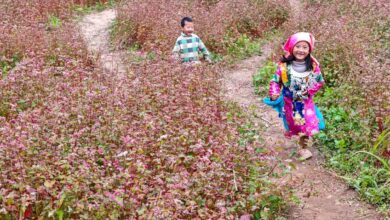The Underspoken Weight of a Label: Deconstructing ‘Fatherless’

The very first word. It often carries more weight than we realize, shaping perceptions, defining identities, and setting narratives. For a child who has lost their father, or whose father is no longer in their life, that word has historically been ‘fatherless’. It’s a label that often arrives before their name, before their dreams, before their unique spirit can even be acknowledged. It describes them not as a child with potential or curiosity, but as one without — without protection, without support, without that particular kind of love. It becomes the first lens through which the world, and often they themselves, see their identity.
This single word doesn’t just describe an absence; it can create a profound sense of isolation. It implies a void that nothing can fill, a missing piece that leaves them permanently incomplete. It can make a child feel as though their father has vanished completely from their world, that he will never cheer them on or celebrate their accomplishments, as if his memory or influence is simply gone. But what if this didn’t have to be the defining truth? What if absence didn’t equate to a complete void? What if the idea of ‘fatherly’ presence could be redefined, supported, and nurtured in new, meaningful ways? In the heart of rural Egypt, a powerful initiative is doing just that, boldly challenging this outdated narrative and rewriting what it means to grow up without a traditional father figure.
The Underspoken Weight of a Label: Deconstructing ‘Fatherless’
Consider the psychological impact of being labeled as ‘fatherless’. It’s more than just a descriptor; it’s an identity handed down, often unintentionally, by society. When a child internalizes this, they can begin to define themselves by what they lack, rather than by what they possess or what they are capable of becoming. This deficit-based framing can subtly undermine self-esteem, foster feelings of inadequacy, and create a sense of being different or incomplete compared to their peers.
The term ‘fatherless’ suggests a vacuum, an emptiness where a vital relationship should be. It ignores the fact that a child’s father might be absent due to circumstances beyond anyone’s control, such as death, illness, or unavoidable distance. It doesn’t account for the enduring love, the memories, or the lessons that might still reside within the child’s heart. Instead, it places the emphasis on a complete vanishing, severing any perceived connection, and leaving the child to navigate a world that sometimes struggles to see their inherent worth beyond this single, defining absence.
This label also carries significant social implications. In many cultures, particularly in more traditional rural settings like parts of Egypt, the father plays a central role in family structure, economic provision, and social standing. His absence, therefore, can expose children and their families to increased vulnerability, economic hardship, and even social stigma. The ‘fatherless’ label can, in these contexts, reinforce a sense of marginalization, making it harder for these children to access opportunities, find community support, or simply feel like an integral part of their society. It becomes a barrier, not just a description.
Redefining Presence: Beyond the Traditional Family Unit
The beauty of human connection lies in its adaptability and resilience. While the traditional father-child bond is irreplaceable in its original form, the qualities often associated with a father – guidance, protection, encouragement, love, and a steady presence – can manifest in many different ways. This is the profound truth that initiatives like the program in rural Egypt are tapping into: the idea that a father’s figure, his essence, can be found and supported by a wider community, a ‘second family’ that steps in to fill the gaps created by absence.
This isn’t about replacing a father, but about ensuring that a child still feels seen, valued, and supported in their growth. It’s about recognizing that love and mentorship aren’t exclusive to one person or one bloodline. A community, when organized with intention and empathy, can provide a rich tapestry of support that helps a child navigate life’s challenges, explore their potential, and understand that they are far from alone. It’s a proactive approach that moves beyond simply acknowledging a loss, to actively building a future brimming with possibility.
Building Bridges, Not Walls: How Mentorship Transforms
At the heart of redefining ‘presence’ is the power of mentorship. For children who have lost their fathers, a mentor can be a stable, consistent adult who offers guidance, shares wisdom, and acts as a positive role model. This figure might be an older relative, a teacher, a community elder, or a volunteer within a structured program. What they offer is invaluable: a listening ear, a source of encouragement, practical advice, and sometimes, simply a consistent, reassuring presence that reminds the child they are cared for and thought of.
Such mentorship relationships help children develop essential life skills, from problem-solving and decision-making to emotional regulation and communication. They provide a safe space for children to express their feelings, ask difficult questions, and receive reassurance. More importantly, these relationships demonstrate that the world isn’t a place of just absence, but also of abundant human connection and care. They prove that while one relationship may have changed, a network of support remains, ready to uplift and empower.
A Beacon in Rural Egypt: The Program’s Transformative Impact
The program in rural Egypt stands as a testament to this transformative power. In a setting where resources can be scarce and traditional norms deeply ingrained, the absence of a father can present unique, amplified challenges. Children might face greater pressure to contribute to household income early, potentially disrupting their education. Social activities might be limited, and the stigma associated with ‘fatherlessness’ could further marginalize them. This program, however, is tackling these challenges head-on by creating a structured, nurturing environment.
It goes beyond mere charity, focusing instead on comprehensive support that addresses the emotional, educational, and social needs of these children. Imagine a young boy, whose father passed away, now finding a male elder in the community who teaches him carpentry skills, not just as a trade, but as a way to build confidence and understand the value of his own hands. Or a young girl, once shy and withdrawn, now thriving in a group setting where she receives academic tutoring and shares her dreams with other girls and supportive female mentors.
The initiative might include workshops focused on emotional resilience, helping children process their grief and develop healthy coping mechanisms. It could offer educational support, ensuring that financial constraints don’t become a barrier to learning. Vocational training opportunities might equip older children with practical skills, paving the way for economic independence and breaking cycles of poverty. Crucially, it fosters a sense of belonging – creating a space where these children realize they are part of a larger, caring family unit, one that sees their individual strengths and nurtures their potential.
By investing in these children, the program isn’t just offering a safety net; it’s building a launchpad. It’s actively working to dismantle the damaging ‘fatherless’ label by demonstrating that a child’s identity is shaped by far more than an absence. It’s shaped by the love they receive, the opportunities they are given, and the community that stands behind them, reminding them that they are whole, capable, and deeply cherished.
Ultimately, the story unfolding in rural Egypt is a powerful reminder that words hold immense power, and our choice of language can either limit or liberate. By actively challenging the ‘fatherless child’ label, this program isn’t just offering alternative support; it’s offering a profound shift in perspective. It teaches us that while life may present us with voids, humanity has an incredible capacity to fill them with connection, care, and a renewed sense of belonging. It’s a testament to the enduring spirit of community and the belief that every child, regardless of circumstance, deserves to be seen, not by what they lack, but by the boundless potential they hold within.





